
Budo Beat 10: Zen and the Art of Getting Hit
The “Budo Beat” Blog features a collection of short reflections, musings, and anecdotes on a wide range of budo topics by Professor Alex Bennett, a seasoned budo scholar and practitioner. Dive into digestible and diverse discussions on all things budo—from the philosophy and history to the practice and culture that shape the martial Way.
If there’s one thing I’ve learned from decades of budo practice, it’s that the path to ‘enlightenment’ is paved with bruises—to both ego and body. You spend years being told to strike with precision, to focus your energy, to pour your heart into every movement, only to have some sensei casually drop a line like, “Ah, but you must also enjoy getting hit.” It’s as if budo were designed by an eccentric (or perhaps even perverted) philosopher who moonlighted as a slapstick comedian. And yet, there’s wisdom buried in the absurdity, like a Zen koan wrapped in a pratfall.
“If you grow impatient, neither strikes, nor thrusts, nor kicks will succeed. Steady your heart, and you will find freedom in your actions.” [1]
I’ve heard something similar more times than I can count over the years as I inch closer to success in my 8th Dan examination in kendo. I covered a similar theme here, so clearly it’s a significant issue for me. In any case, just last week, another sensei of mine said it again: focusing solely on striking your opponent makes you lose your mental calm, fall into confusion, and open yourself up to defeat. “The trick”, he said, “is to avoid obsessing over landing a hit. Instead, calmly watch your opponent and keep a ‘mindset of self-protection.’”
“Wait,” I said. “You mean, avoid getting hit?” This sounded counter-intuitive. After all, in kendo, defence is hardly the emphasis.
But then, another sensei told me a couple of months before, “You’ve got to get hit. If you get hit, it means you’re making your opponent feel like they’ve got you figured out—like you’ve handed them the keys to your front door. But here’s the twist: it’s a fake key. They step in, triumphant, only to find you sitting there with a cup of tea and a trapdoor lever. All you’ve got to do is let them think they’ve won, then use that against them once they’ve committed. And then? You won’t get hit… unless, of course, you’re too slow pulling the lever.”
?!
“The key is to avoid rushing or panicking,” he clarified, “to remain still and composed, carefully reading the opponent’s movements. If you avoid unnecessary fixation, openings will naturally present themselves—like moonlight streaming into a humble home.”
It’s starting to make sense, sort of. Each sensei gives me a piece of the puzzle to mull over. Still, this “mindset of self-protection” might sound logical, but it seems at odds with the usual budo values, like “sutemi”—throwing yourself wholeheartedly into a sacrificial attack. Yet, here’s the paradox: to protect is to attack. The real challenge lies in finding harmony between offence and defence.
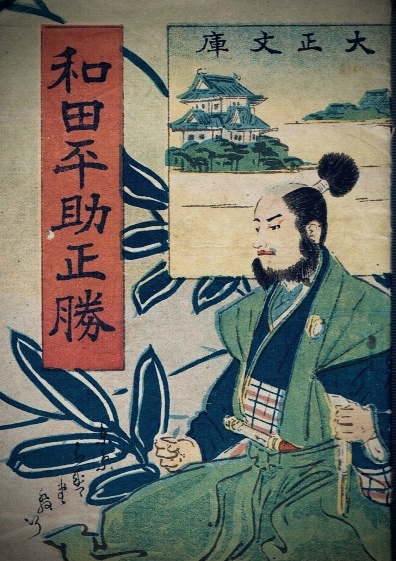
Wada Heisuke, founder of the Shin-Tamiya-ryū school of swordsmanship in the early Edo period, captured this perfectly: “Striving solely for victory in battle reflects the mindset of the unskilled, while the skilled focus on ensuring they cannot be defeated. By prioritising this unyielding stance, one naturally lures the enemy into seeking an advantage. In their attempts to exploit perceived openings, they inevitably falter. Seizing such moments with precision leads to a victory free of unnecessary risk. This principle should not be misconstrued as mere chance or luck; it is far from happenstance. True skill lies in steadfast preparation to remain unassailable, compelling the opponent to overreach. By capitalising on these critical lapses, one forces the enemy into hurried, ill-considered actions, securing triumph with calculated grace.”
On the drive home from the dojo, I let this idea simmer. Excellence, I concluded, means polishing your mind until it reflects like a mirror and finding a balance between readiness and response. When you’re truly prepared, you strike naturally, capitalising on openings as they appear.
This ties in neatly with other teachings I’ve come across, like “the mind of dew” and “the principle of the moon on water.” Dew on a blade of grass falls instantly with the slightest touch, symbolising how a fully charged spirit, free of distraction, can react instantaneously to an opponent’s movements. (Thank you, Hayashi Tatsuo-sensei.)
Meanwhile, the famous “moon on water” principle is about adaptability. Just as the moon’s reflection shifts with ripples on the surface of a pond, you must adjust seamlessly to an opponent’s actions. Victory comes when you seize the moment they reveal their intentions.
In the end, it’s never about forcing victory. True skill is a mind so clear and calm that victory arrives unbidden, like rain falling from the heavens.
“No one strikes them down, yet when the time comes, the raindrops from the heavens fall on their own.”
[1] Saitō Akinobu, Jikishin Kage-ryū Ken’ei Gokui Kyōju Zukai, 1901






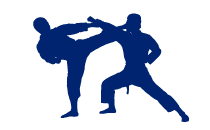






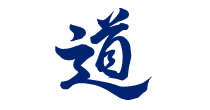
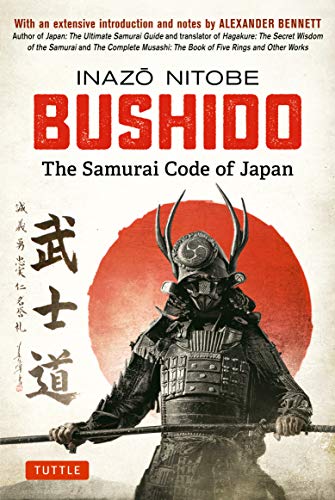

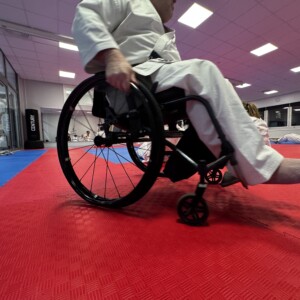
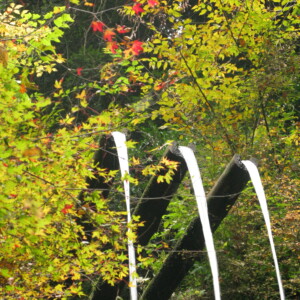

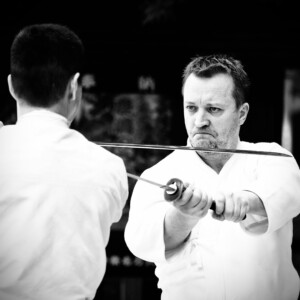

No comments yet.